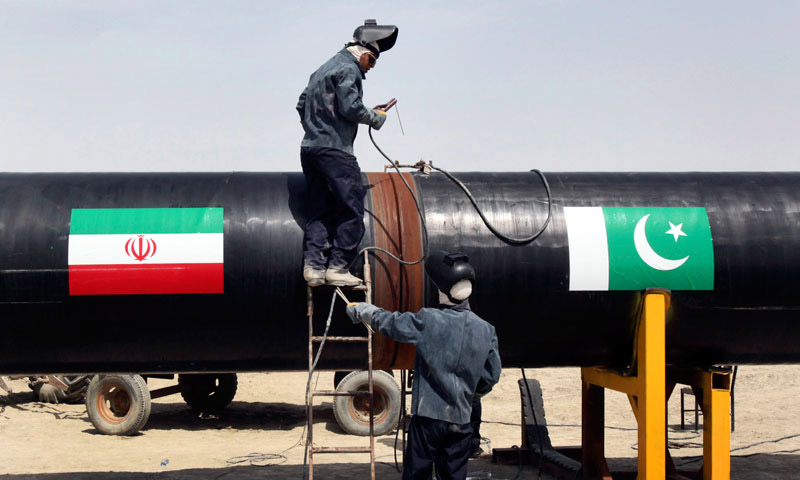Authorities have initiated work on the much awaited Iran Pakistan gas pipeline. In the first phase construction work will focus on construction of 80-km pipeline from Gwadar to a point where it will get connected with the gas pipeline in Iranian territory.
Initiation of further work on the 781 Km project will be decided after the visit of Iranian President Ebrahim Raisi at the end of April.
Work on this project has started after Iran warned of a penalty worth $18 billion under the penalty clause of the Gas Sales Purchase Agreement (GSPA) for delay in construction of the project.
It is pertinent to mention here that USA has explicitly opposed this bilateral project, along with clear warnings of potential sanctions on Pakistan if this project is completed and gas is purchased from Iran. The project has faced nearly a decade-long delay since its intended completion in December 2014, followed by operationalisation in January 2015.
Initially, the 80-kilometer pipeline section is expected to handle 100 million cubic feet per day (mmcfd) gas, compared to the anticipated 750 mmcfd for the project’s 25-year duration.
After completion of this process, authorities will proceed with land acquisition, followed by the awarding of Engineering, Procurement, and Construction (EPC) contracts.
Authorities have initiated work on the much awaited Iran Pakistan gas pipeline. In the first phase construction work will focus on construction of 80-km pipeline from Gwadar to a point where it will get connected with the gas pipeline in Iranian territory.
Initiation of further work on the 781 Km project will be decided after the visit of Iranian President Ebrahim Raisi at the end of April.
Work on this project has started after Iran warned of a penalty worth $18 billion under the penalty clause of the Gas Sales Purchase Agreement (GSPA) for delay in construction of the project.
It is pertinent to mention here that USA has explicitly opposed this bilateral project, along with clear warnings of potential sanctions on Pakistan if this project is completed and gas is purchased from Iran. The project has faced nearly a decade-long delay since its intended completion in December 2014, followed by operationalisation in January 2015.
Initially, the 80-kilometer pipeline section is expected to handle 100 million cubic feet per day (mmcfd) gas, compared to the anticipated 750 mmcfd for the project’s 25-year duration.
After completion of this process, authorities will proceed with land acquisition, followed by the awarding of Engineering, Procurement, and Construction (EPC) contracts.







